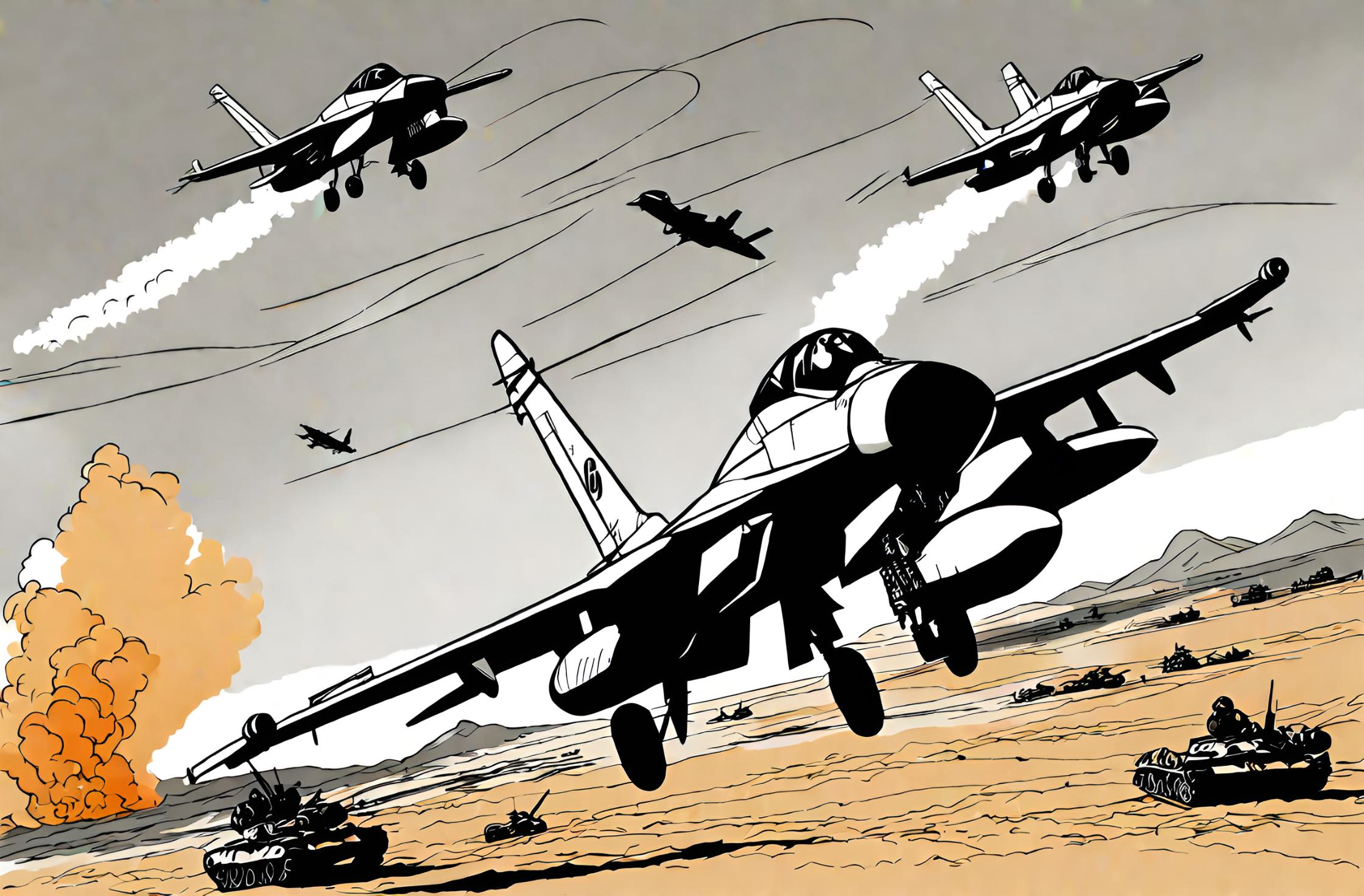Flashback to January 7
World History

In the annals of global history, few dates are as iconic as January 17, 1991. A date which marked the start of the Gulf War, an event forever etched in our collective memory as Operation Desert Storm. A date that served as the catalyst for a massive military action involving an international coalition led by the United States, an endeavor aimed at liberating Kuwait from the clutches of Iraqi invasion.
The Gulf War, or as it’s often referred to, Operation Desert Storm, set a new precedence in the realm of international conflict resolution. Countries from across the globe joined forces, under the aegis of the United Nations, to combat a local crisis that had significant international implications. This war was emblematic of a collective resolve to protect global peace and sovereignty.
The chain of events that led to the Gulf War commenced on 2nd August 1990, when Iraq invaded Kuwait, asserting a historical claim over the oil-rich nation. The global community was swift in its condemnation, with the United Nations passing multiple resolutions demanding an immediate and unconditional withdrawal. However, by the close of 1990, these requests were met with stoic silence and action was deemed necessary.
In the early hours of January 17, 1991, Operation Desert Storm was set into play. It was the first war that was broadcast live on television, gripping viewers around the world with real-time coverage. This marked a new era in the representation of warfare in media, taking it from the courtyards of power to the drawing rooms of the public.
The military tactics employed during Operation Desert Storm were marked by technological supremacy. Cutting-edge technology in the form of precision-guided munitions, stealth aircraft and advanced communication systems were deployed with an efficacy never seen before. This was truly a war of the modern world, showcasing the catastrophic potential of advanced warfare.
But the Gulf War didn’t just exhibit military might. It also represented the strength of diplomatic arbitration and unity. The coalition of 35 countries, spearheaded by the United States, showcased a blend of diplomatic negotiations and military action. Aspects of strategy, from military planning to coordinating multilateral responses, were illustrative examples of cooperation among nations for a common cause.
The start of Operation Desert Storm was more than just a war; it was a symbol of what can be achieved when nations unite to confront aggression. It represented the triumph of diplomacy, the power of a united stand and the determination to uphold international law.
This monumental event paved the way for novel strategies in international relations. The Gulf War was the first instance of a truly multinational force being mobilized to counter an act of aggression. The dynamics of the coalition and the execution of Operation Desert Storm were significant influences on tactics employed in subsequent international conflicts.
Operation Desert Storm also laid out a blueprint for humanitarian relief during times of conflict. In the wake of the escalating warfare, the United Nations and other global agencies undertook significant efforts to provide aid to those affected by conflicts. From distributing food supplies to offering medical assistance, the humanitarian response during the Gulf War played a crucial role in mitigating the war’s impacts on civilians.
In essence, the Gulf War was a significant historical event that reshaped our understanding of conflicts and warfare. The start of Operation Desert Storm, on that significant day in January 1991, marked a new chapter in international relations, the impacts of which are still discernible in today’s geopolitical landscape.
A deep dive into the Gulf War is much more than a study of the yesteryears; it’s an understanding of the roots of our current global conflicts and alliances. In remembering January 17, 1991, we do not simply commemorate the start of a war, but the day when the world united in a common resolve, ushering in a new era in international diplomacy and conflict resolution.
We strive for accuracy. If you see something that doesn't look right, click here to contact us!
Sponsored Content

First printing in Hawaii.
On January 7, 1822,…

First steamboat passes through…
On January 7, 1914,…

Theodorus I [Fedor Ivanovitch],…
On January 7, 1598,…

The Leaning Tower of…
On 1/7/1990, the iconic…

Trucial States (later United…
On January 7, 1961,…

Dutch Princess Juliana marries…
On January 7, 1934,…

